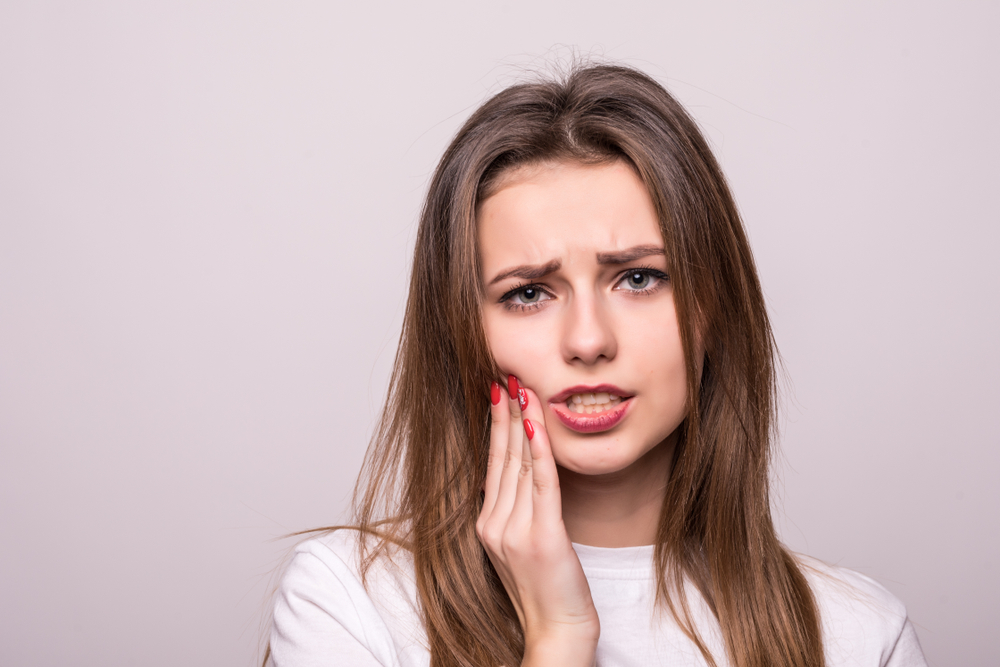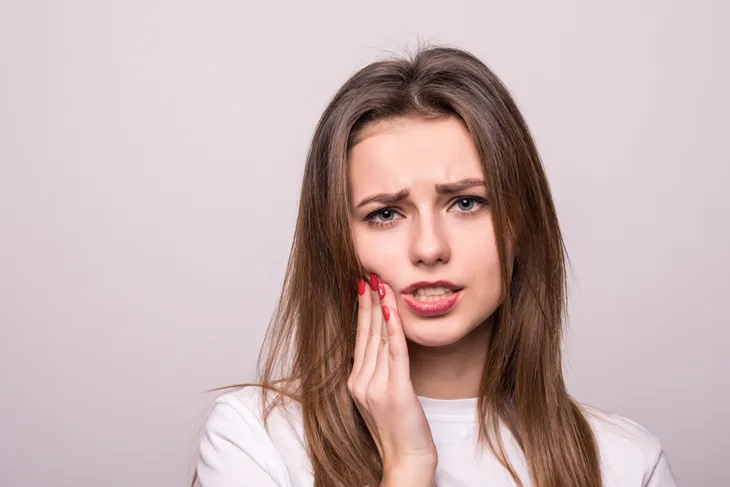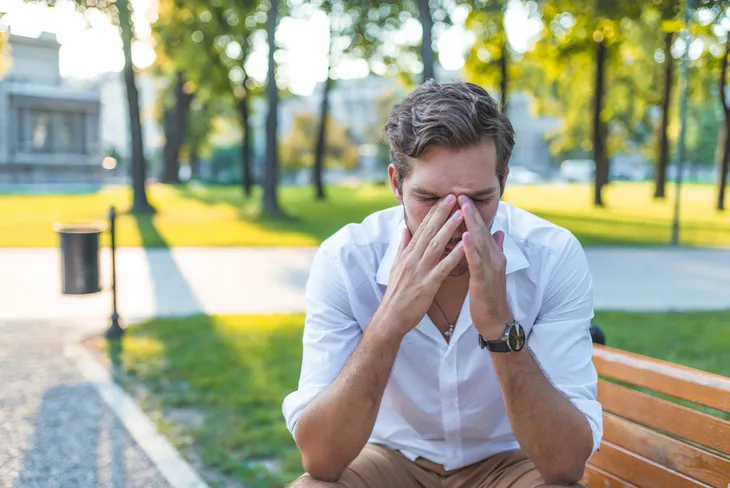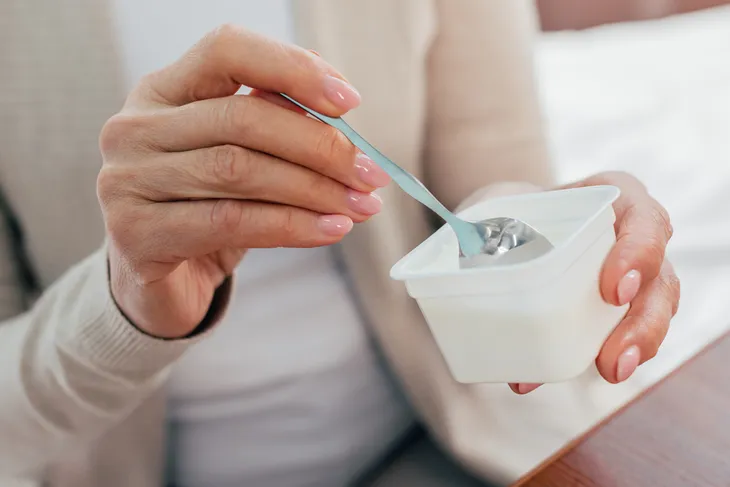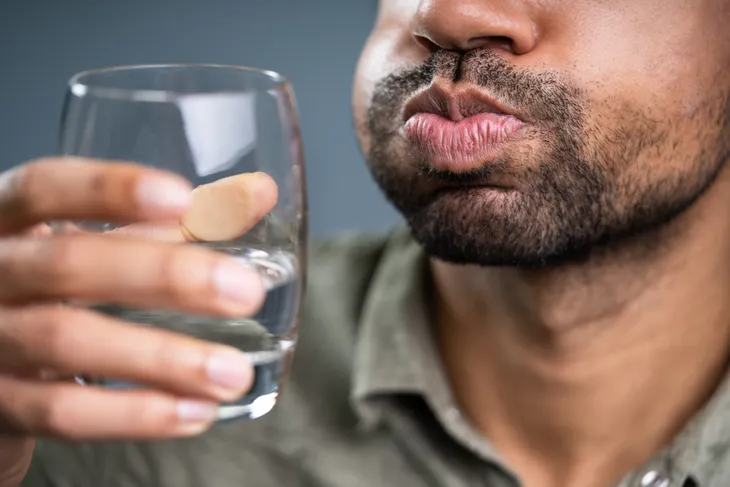Having pain inside the mouth is never a fun experience. If you notice a small lesion in your mouth, you might have a canker sore. While they may not be serious, they can be extremely painful and make normal daily activities like eating and drinking difficult.
Let’s take a closer look at what canker sores are, their common symptoms and causes, and what you can do to treat them if you get one. We’ll also uncover a few prevention tips to help decrease your chances of getting one again. Let’s dive in!
What Is a Canker Sore?
A canker sore, also medically known as an aphthous ulcer, is an “open and painful mouth ulcer or sore,” says Healthline. They’re typically white or yellow and are surrounded by inflamed soft tissue.
They can develop on the soft tissues in your mouth like the inside of your lips or cheeks. They can also develop along the gums. Canker sores are also the most common type of mouth ulcer.
Canker Sore vs. Cold Sore: What’s the Difference?
When you first catch sight of the sore, it can be hard to tell whether it’s a canker sore or a cold sore. While they can look similar, there are some key differences. For starters, cold sores can appear on the outside of your mouth and canker sores cannot. In fact, cold sores can appear on your lips, nose, and even eyes!
Cold sores also begin as blisters (not inflamed sores), and then they turn into sores after the blister pops. Cold sores are also caused by the herpes simplex virus whereas canker sores have different causes (we’ll get into those later in the article).
Common Symptoms of Canker Sores
Canker sores can be downright painful. They typically look like a small white or yellow oval-shaped lesion in your mouth. You may also experience a tingling sensation.
Less common symptoms include swollen lymph nodes, a fever, and a general feeling of being unwell. While canker sores may be painful, unlike cold sores, canker sores are not contagious.
What Causes Canker Sores?
Canker sores have many causes but some of the most common include a mouth injury, a viral infection, stress, and hormonal fluctuation. Food allergies, menstrual cycles, and immune system problems are also common causes of canker sores.
Further, if you have a family history of canker sores, your risks of developing one will increase. A vitamin or mineral deficiency (particularly, niacin, folic acid, cobalamin, zinc, iron, or calcium) can also trigger a canker sore or make a preexisting one worse. Finally, in some cases, the cause can’t be determined.
When to See a Doctor
If you suspect your canker sores are triggered by a vitamin or mineral deficiency, contact your doctor. They can help determine what changes you need to make to your diet, and prescribe supplements if needed.
You should also see your doctor or dentist if the canker sores are large, if you have an outbreak of sores, if you’re in excruciating pain, have a high fever, diarrhea, a rash, or a headache. Finally, seek medical attention if the canker sore hasn’t healed within 3-weeks or if you’re unable to eat or drink.
Diagnosing Canker Sores
Your doctor can typically diagnose a canker sore simply by examining it. If you have a severe breakout or if they suspect you may have a vitamin or mineral deficiency, virus, a problem with your immune system, or hormonal disorder, they may request a blood test or take a biopsy of the affected area.
You should also be on the lookout for cancerous lesions as they can look like a canker sore. The key difference is a cancerous lesion won’t heal without treatment. They also share similar symptoms to canker sores but oral cancer is also accompanied by bleeding from your mouth or gums, trouble swallowing, loose teeth, and earaches. If you experience any of these symptoms, contact your doctor immediately to rule out oral cancer.
Complications
Thankfully, canker sores are rarely serious. That said, if it doesn’t heal and you leave it untreated for several weeks it may cause more serious complications. Some of these include pain while talking, eating, or brushing your teeth, fatigue, fever, sores spreading outside of your mouth, and cellulitis (a bacterial skin infection).
It’s important to contact your doctor if any of these complications arise. Bacterial infections can spread and cause more serious problems. It’s also vital that you seek medical attention if your home treatments aren’t working, or if you’re in unbearable pain.
Treatment Options for Canker Sores
Canker sores can often heal on their own within 1 to 3-weeks, without treatment. The pain typically subsides within 7 to 10-days. In the meantime, Healthline says you can try drinking milk or eating yogurt or ice cream to help reduce the pain. The source also recommends avoiding spicy foods to help speed up the process.
If you’re experiencing severe pain, your doctor/dentist may prescribe an antimicrobial mouth rinse, an antibiotic, a corticosteroid ointment, or a prescription mouthwash.
Effective Home Remedies for Canker Sores
Several home remedies may also be effective in relieving your pain. For starters, gargling saltwater (1/4-teaspoon of salt in1-cup of warm water) may help reduce the pain and promote healing. You can also try a mixture of warm water and baking soda (1-tsp. of baking soda per 1/2-cup of water).
Healthline also explains, “applying ice or tiny amounts of milk of magnesia to your sores can help relieve pain and promote healing.” Finally, applying honey to the affected area may be effective in treating your canker sore too.
Prevention: Manage Your Stress
Experiencing one canker sore is enough to never want it to occur again. Luckily, there are a variety of prevention strategies you can try to help prevent a canker sore from developing in the future.
Some canker sores are triggered by stress. If this is the case you can learn to use stress-reduction techniques to help keep stress at bay. Some daily tips to manage stress include meditation, exercising, following a regular sleep schedule, and reaching out for help if you need it.
Prevention: Watch What You Eat
Another great way to prevent canker sores is to watch what you eat. Mayo clinic says to avoid foods that irritate your mouth. This may include certain spices, salty foods, chips, and acidic fruits (such as oranges, grapefruit, and pineapple).
Further, if your canker sores are triggered by nutrient deficiencies make sure you stock up on healthy foods and eat plenty of fruits, vegetables, and whole grains.
Prevention: Practice Good Oral Hygiene
Good oral hygiene is essential for a healthy mouth but it’s also a great way to prevent canker sores. This entails brushing your teeth regularly at least twice a day, and after meals, if you can. Flossing once a day can help keep your mouth clean and remove foods that may trigger the sores.
It’s also a good idea to invest in a soft toothbrush to prevent irritation to your gums. Mayo Clinic also recommends avoiding toothpaste and mouth rinses that contain sodium lauryl sulfate. Finally, if you have braces or other dental appliances, ask your dentist if they can provide waxes to cover any sharp edges.
